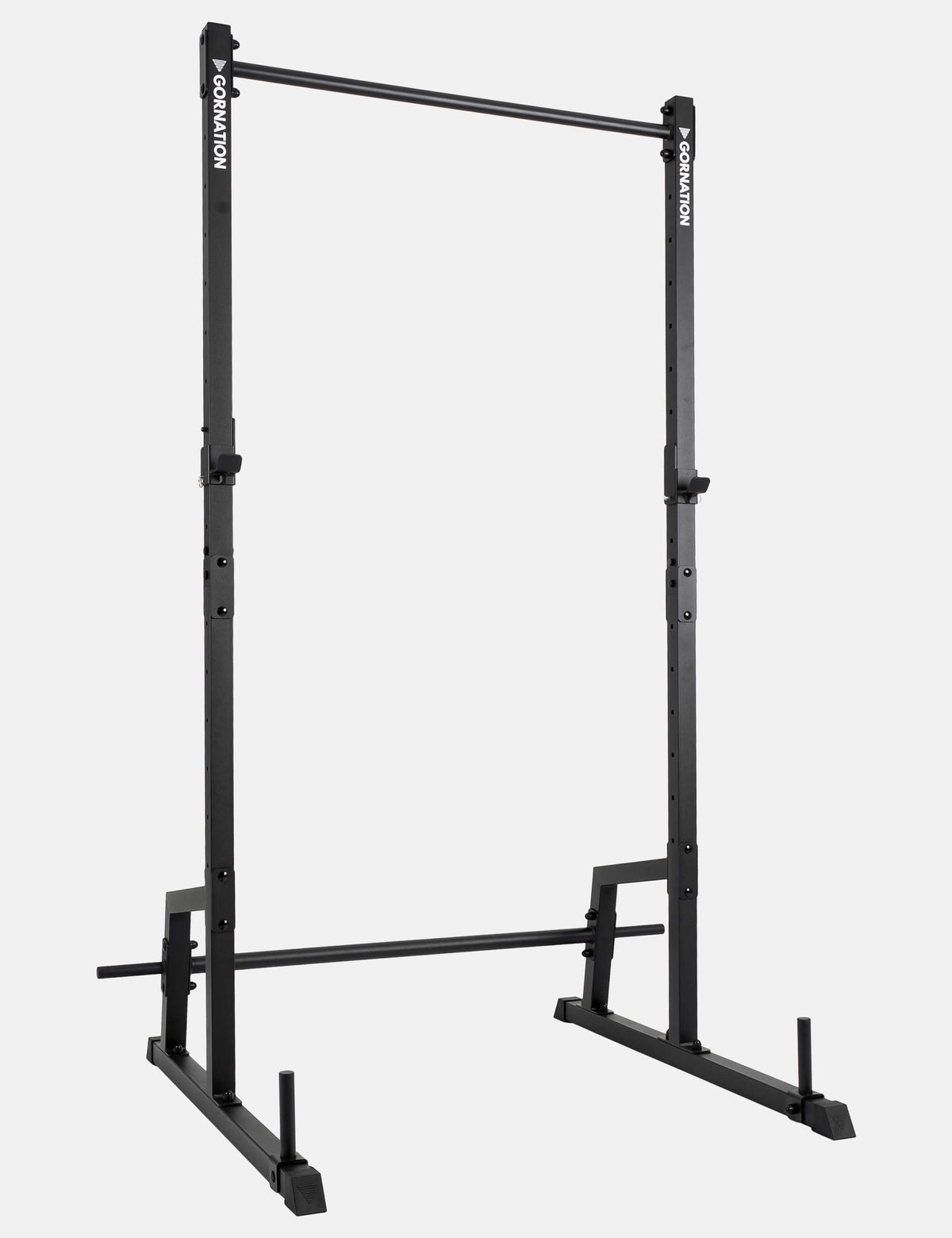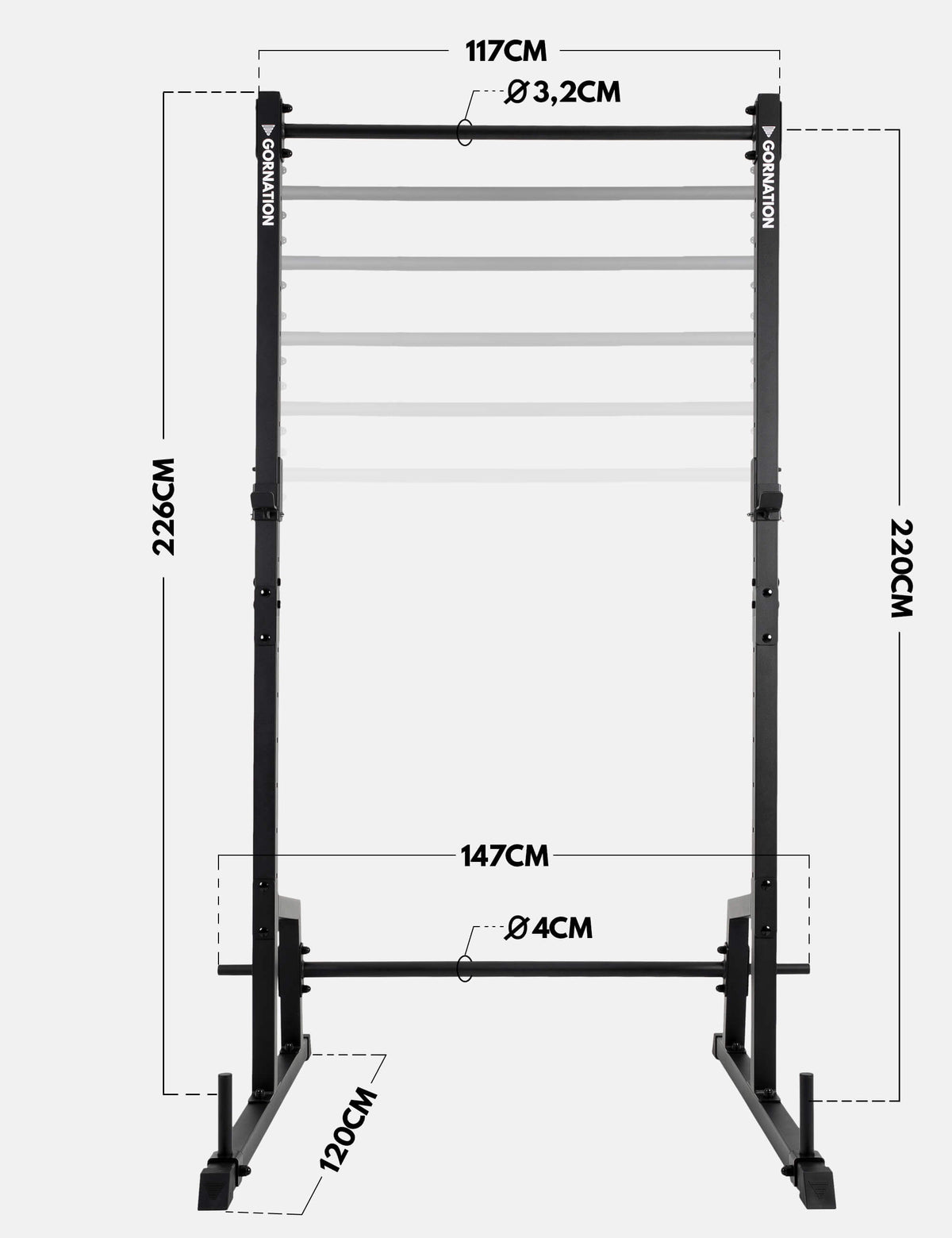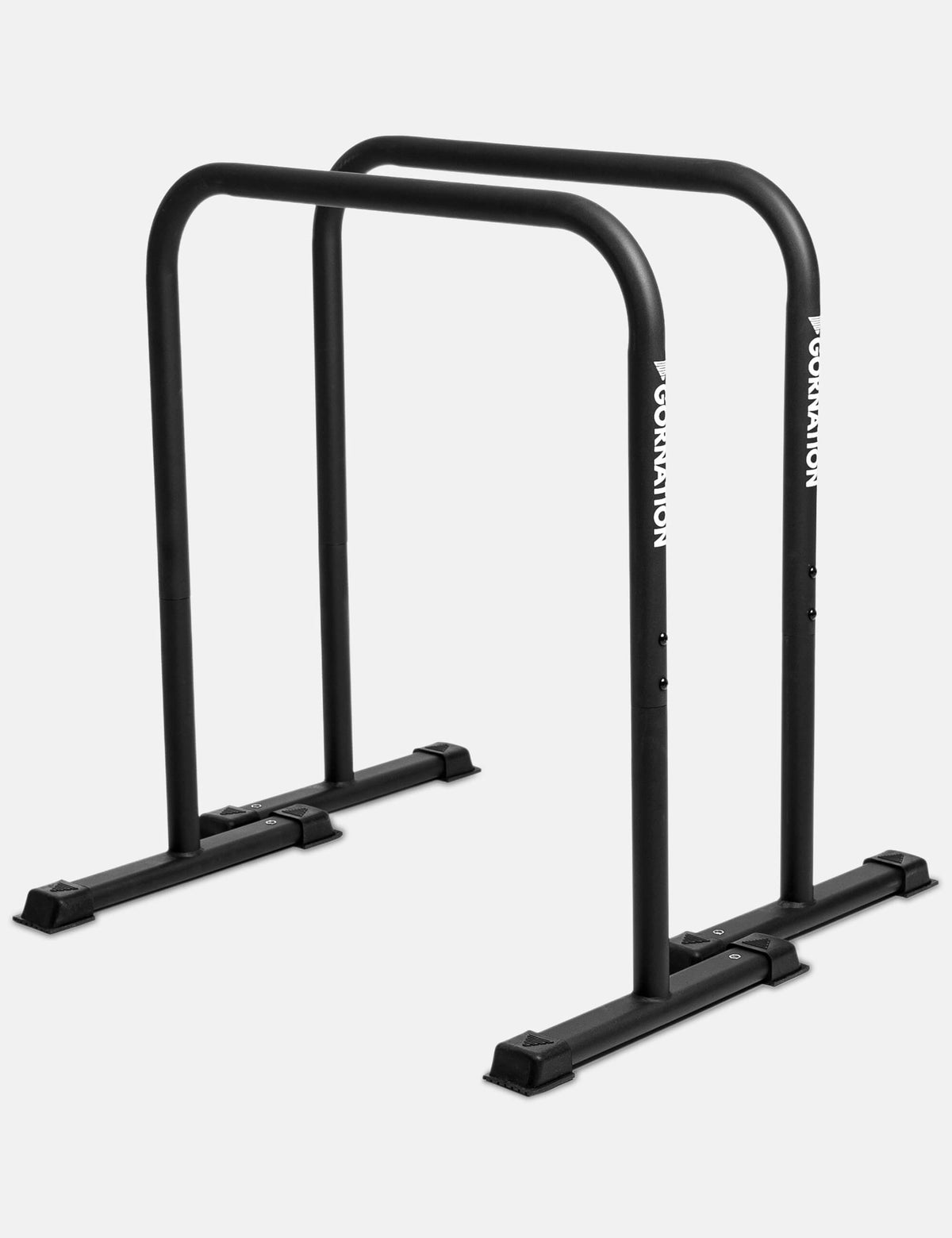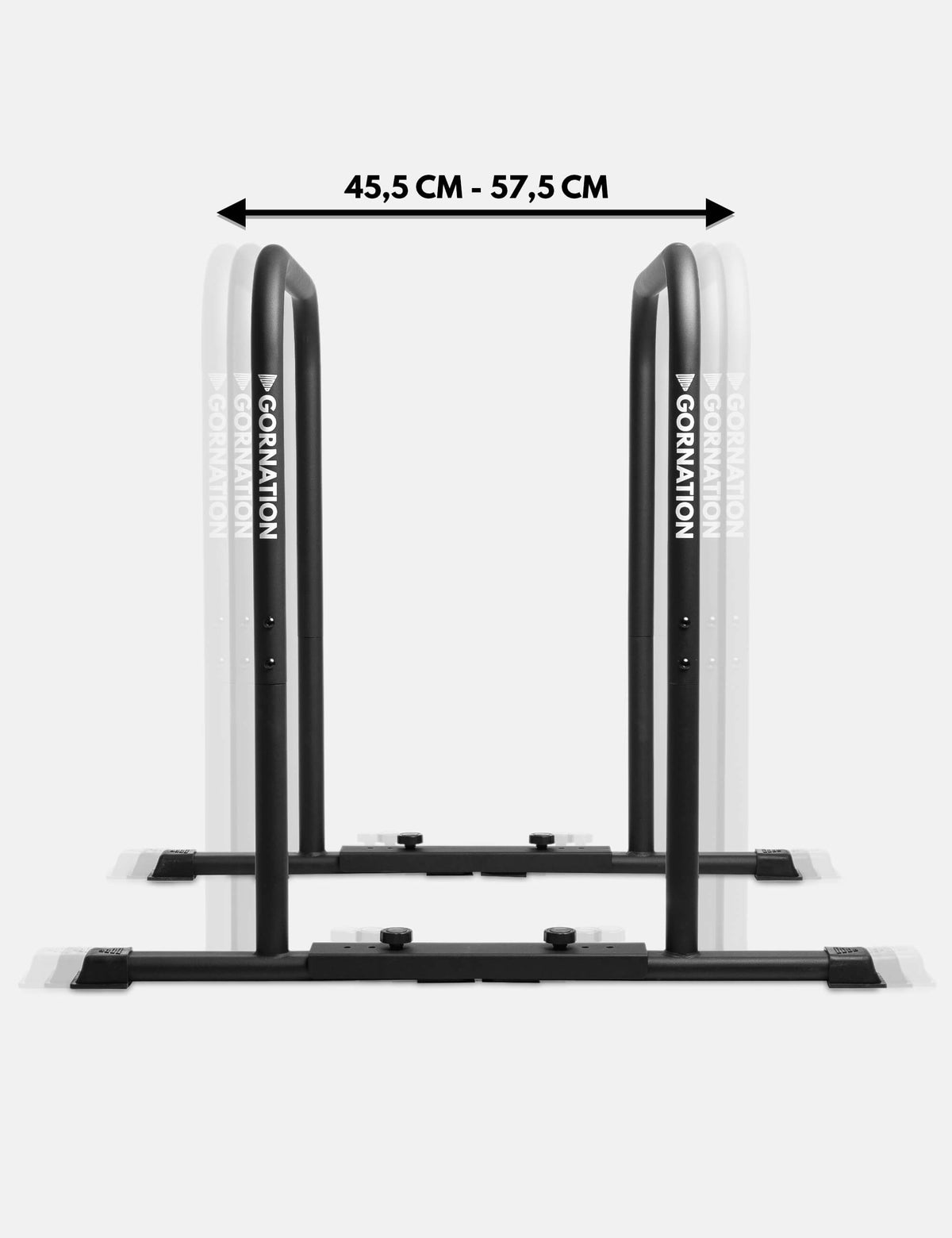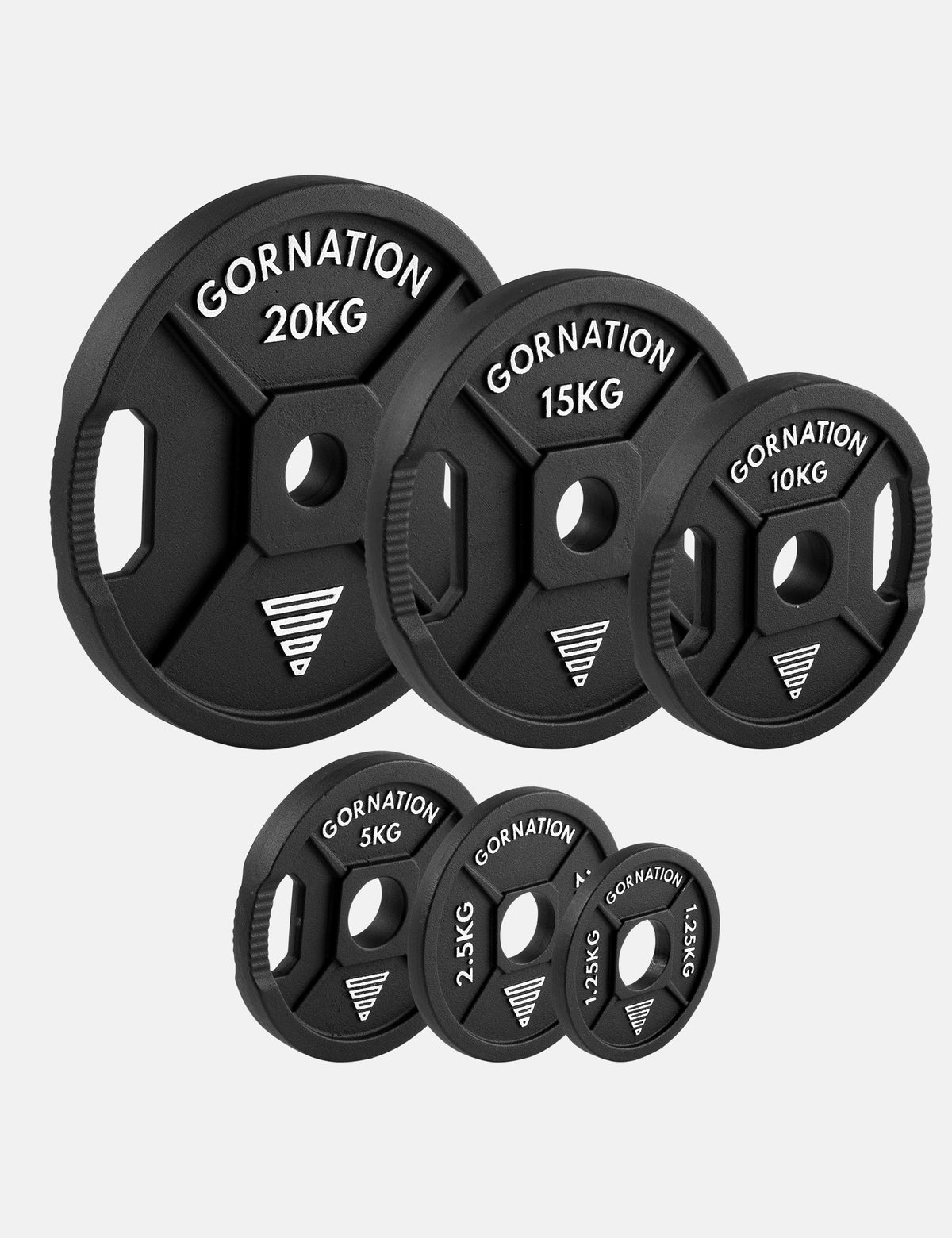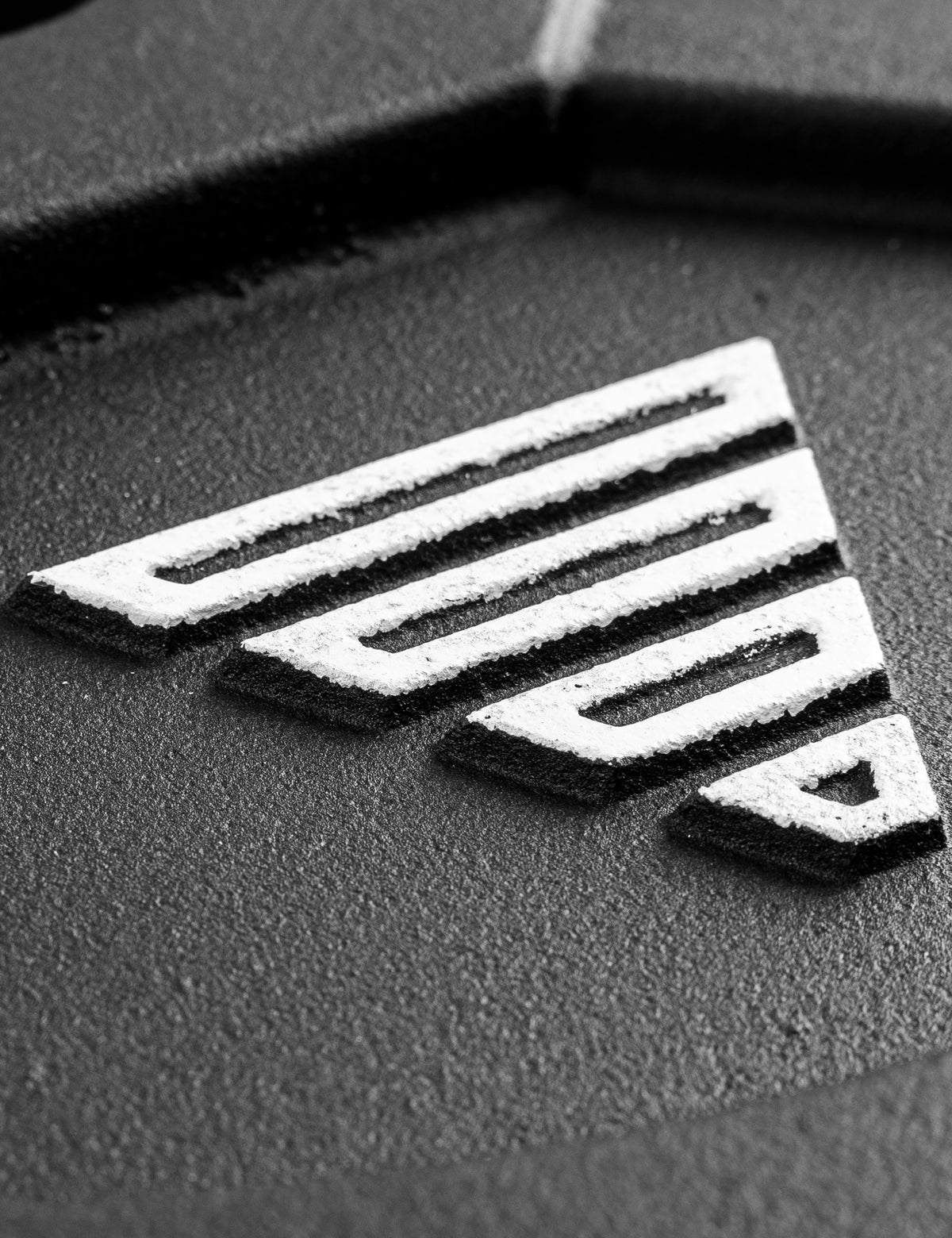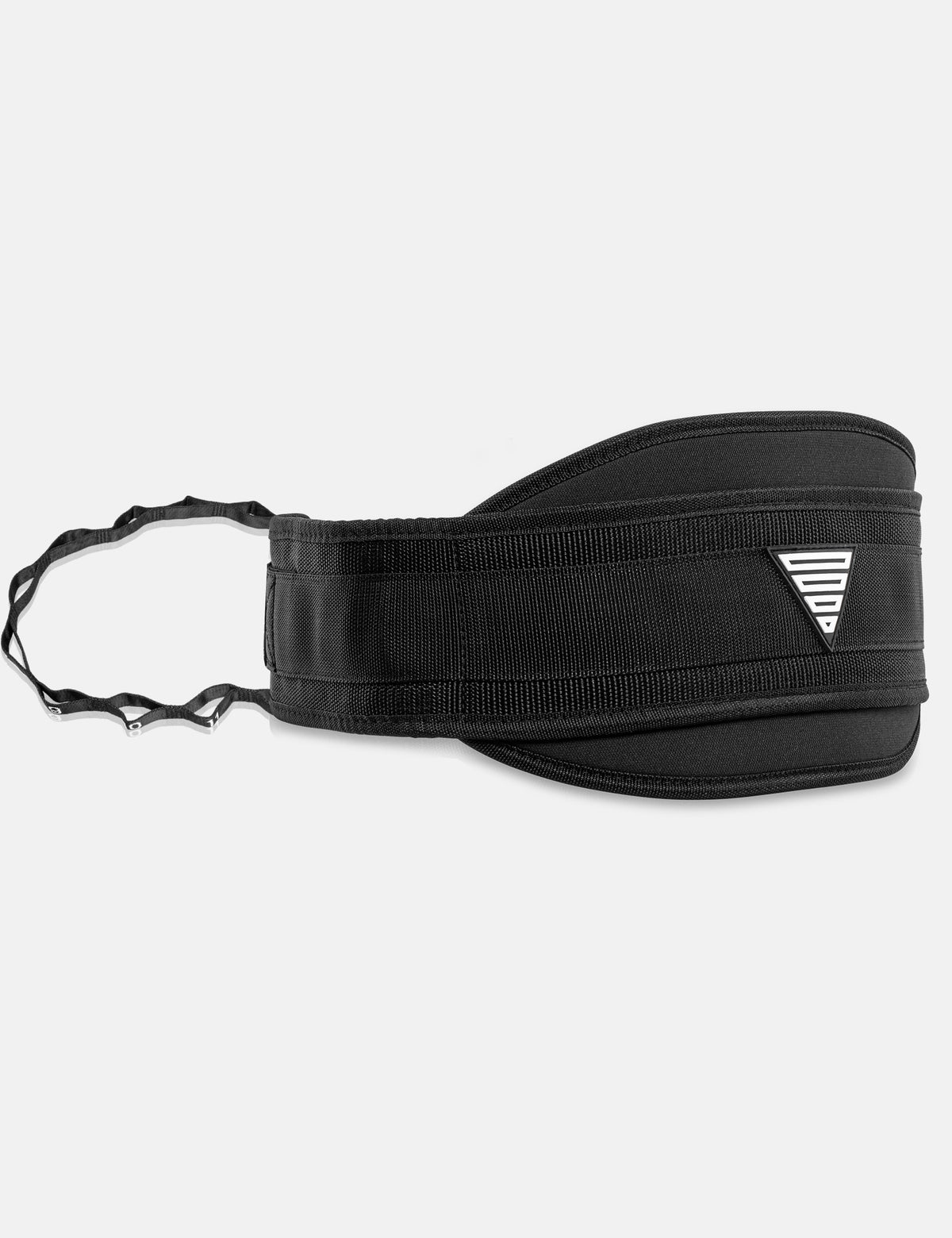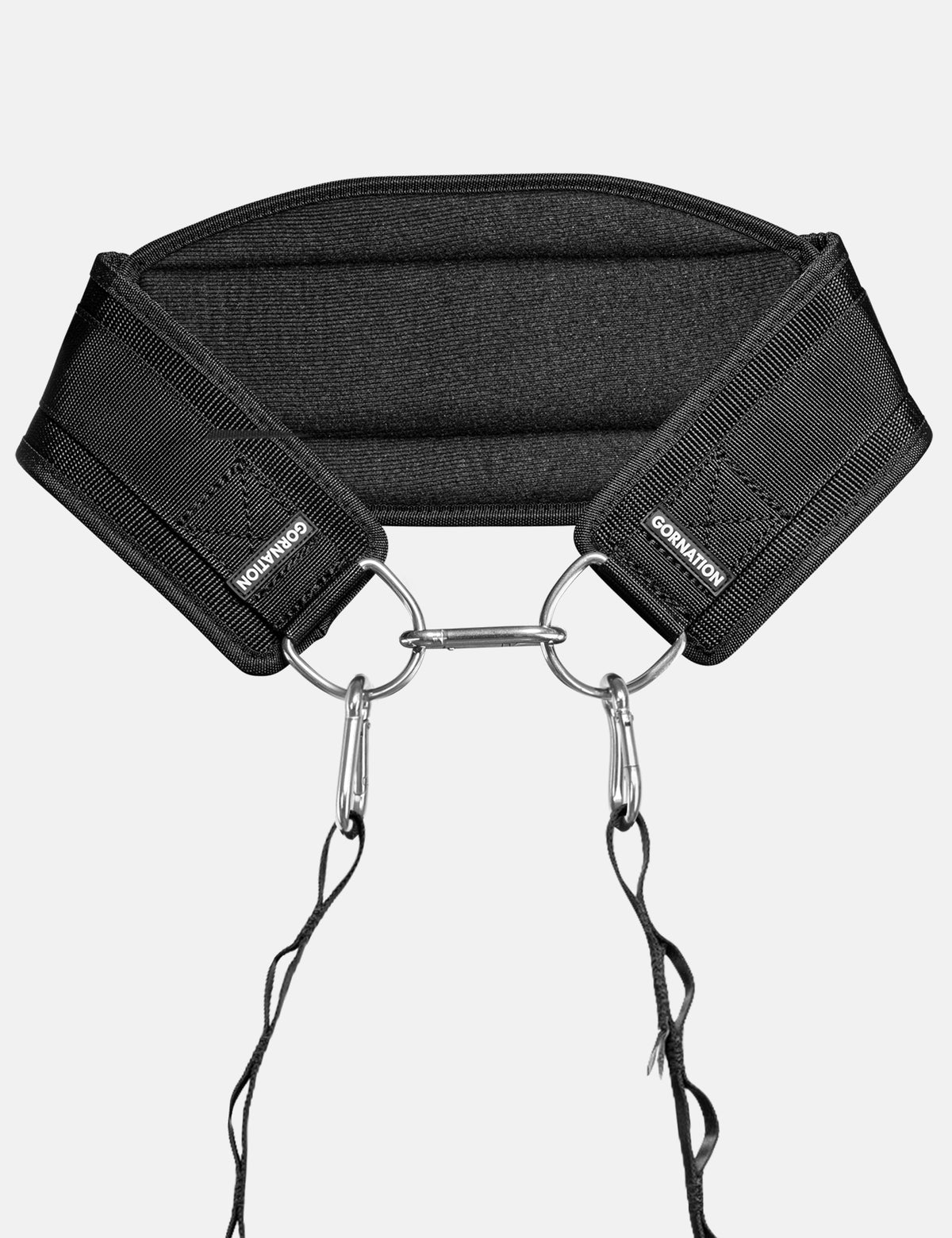How to do the exercise
The Australian Pull Up is the perfect progression exercise if regular pull ups are still too challenging. It mimics the same movement pattern, builds pulling strength, and is also great as a warm-up to prepare your muscles and joints for harder pulling variations. Here’s how to perform the Australian Pull Up correctly:
1. Starting Position
Set up under a low bar with your hands about shoulder-width apart in an overhand grip. Place your heels on the ground with legs extended or bend. Adjust the height of the bar to make the exercise easier or harder.
2. Pulling Phase
Engage your core and pull your chest toward the bar in a controlled motion. Keep your elbows close to your body and avoid flaring them out. Aim to touch the lower part of your chest to the bar while maintaining a tight body line.
3. Lowering Phase
Slowly extend your arms and lower your body back down until your arms are straight again. Keep tension in your back and core to avoid sagging or swinging during the movement.
4. Reset and Repeat
Pause briefly at the bottom, reset your body tension, and repeat the movement for the desired number of reps. Over time, lower the bar or elevate your feet to increase the difficulty and build strength toward full pull ups.
Recommended Equipment for Australian Pull Ups:
Benefits of the exercise
The Australian Pull Up is ideal for building strength and preparing for full pull ups:
-
Strengthens back, biceps, and grip with reduced resistance
-
Improves pulling technique and body alignment
-
Engages core and stabilizers, preventing swing
-
Adjustable difficulty by changing bar height or foot position
This makes it a valuable progression for beginners and an effective accessory exercise for advanced athletes focusing on endurance and form refinement.
Main muscles used
The Australian Pull Up mainly targets:
-
Latissimus dorsi (Lats)
-
Biceps
-
Rear and middle deltoids
-
Core muscles (for stability and body tension)
By practicing this controlled pulling motion, you develop balanced upper body strength and prepare your body for unassisted pull ups.
If you're looking for other exercises, check out our Youtube video:
Mistakes to avoid
Common mistakes when performing the Australian Pull Up include:
-
Bar too high or too low: Choose a height that challenges you without breaking form.
-
Flaring elbows out: This reduces back activation and can stress the shoulders.
-
Sagging hips: Keep your body straight and engage your core.
-
Partial range of motion: Pull your chest fully to the bar and extend arms completely at the bottom.
-
Using momentum: Avoid jerking or swinging – perform each rep slowly and controlled.
-
Neck misalignment: Keep your gaze upward or forward instead of looking down to maintain good posture.
Progress by lowering the bar, elevating your feet, or adding resistance to build strength and move closer to full pull ups.
Discover more Exercises
Looking for more ways to level up your training? Check out our full exercise overview or try these effective exercises that perfectly complement your training:
Please read our legal disclaimer before starting your workout.
 | 5.500+ Reviews
| 5.500+ Reviews
 Free EU Shipping above 100€*
Free EU Shipping above 100€*
 300.000+ Customers Worldwide
300.000+ Customers Worldwide
 Worldwide Tracked Shipping
Worldwide Tracked Shipping






